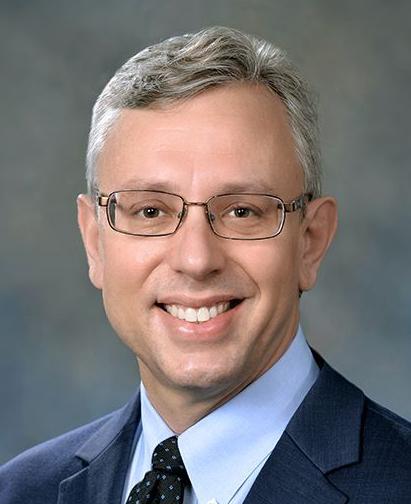Message From the Chair

The Department of Neurology at Baylor College of Medicine in Houston, Texas is home to an accomplished group of experts from around the globe, united in their commitment to advancing education, research, and clinical care in the field of neurology. Our faculty are dedicated to educating the next generation of physicians while conducting groundbreaking research on neurological disorders that profoundly affect the daily lives of our patients at Baylor Medicine.
As one of the premier academic medical institutions worldwide, Baylor College of Medicine is renowned for its commitment to excellence. The Department of Neurology provides a rigorous training program for residents and fellows, emphasizing critical thinking and an in-depth understanding of neurological conditions. Our curriculum is designed to cultivate a dynamic environment conducive to intellectual growth, clinical expertise, and scholarly achievement in diverse clinical setting and patient populations.
Our department boasts a distinguished history of pivotal discoveries and innovations, from pioneering the clinical use of botulinum toxin (Botox) in the treatment of movement disorders to collaborating with geneticists to elucidate the molecular underpinnings of neurological diseases, our researchers are at the forefront of making essential contributions to the understanding and treatment of some of the most complex and debilitating neurological conditions.
In clinical care, our department is dedicated to providing comprehensive services for patients with a wide range of neurological disorders, including Alzheimer's disease and other forms of dementia, multiple sclerosis, Parkinson’s disease, epilepsy, neuromuscular disorders, neuropsychological conditions, and obstetric neurology. Our physicians provide expert care across various locations within the Texas Medical Center, including Baylor Medicine at the McNair Campus, Baylor St. Luke’s Medical Center, Texas Children’s Hospital, the Michael E. DeBakey Veterans’ Affairs Medical Center, Ben Taub General Hospital and the Harris Health System, and UT MD Anderson Cancer Center.
By choosing Baylor Neurology for education, research, and healthcare, you are assured access to world-class expertise, innovation, and compassionate care.
Best wishes,
Thomas Lloyd, M.D. Ph.D.








